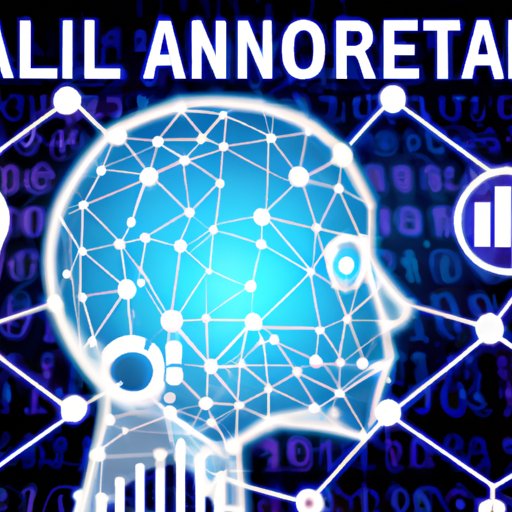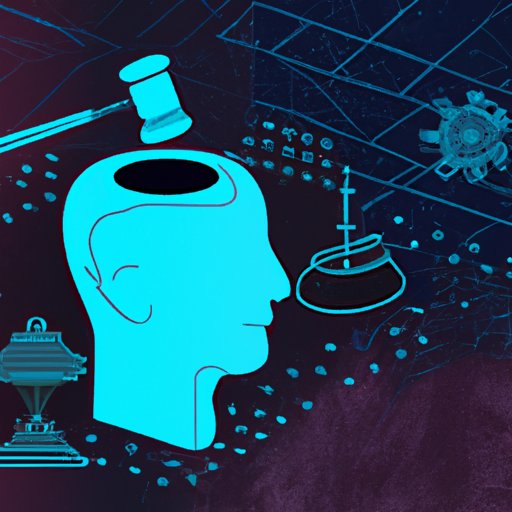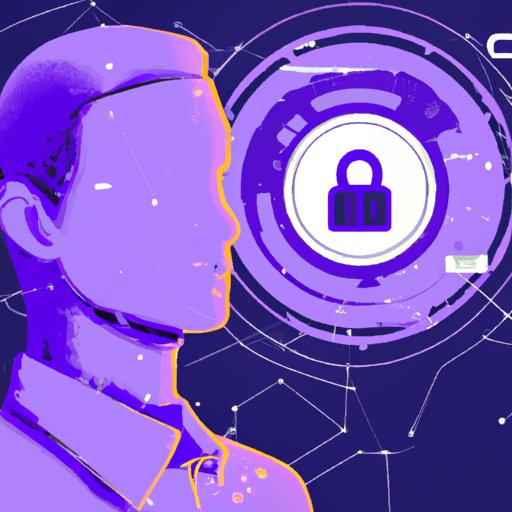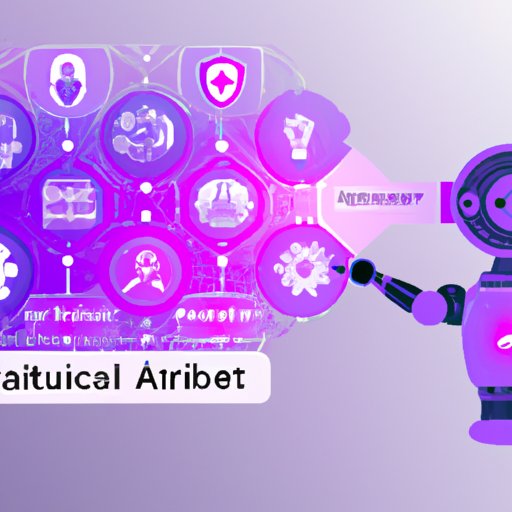Introduction
Artificial intelligence (AI) has become an increasingly important part of our lives, from the way we work to the way we play. As technology advances, the need to regulate AI is growing as well. In this article, we’ll explore the potential benefits and risks of regulating AI and examine the implications for innovation, ethics, economics, law, security and society.
Examining the Potential Benefits of AI Regulation
When it comes to regulating AI, there are several potential benefits. The most obvious is increased transparency. Regulations can provide a framework for companies to disclose information about their use of AI, which would give consumers a better understanding of how their data is being used and what decisions are being made on their behalf. This could also lead to improved safety, as regulations could include requirements for testing and validation of AI systems to ensure they are functioning as intended.
Regulating AI could also promote more responsible use of the technology. Regulations could include guidelines for ethical behavior and principles for how AI should be used. This could help to ensure that AI is used in a way that is beneficial to society and minimizes negative impacts.
How Government Regulations Could Impact the Use of AI
If governments decide to regulate AI, there would be several implications. First, enforcement mechanisms would need to be put in place to make sure companies comply with the regulations. This could include fines or other penalties for non-compliance. It could also involve regular audits to check that companies are meeting the standards set out in the regulations.
Regulatory compliance could also be costly for companies. They may need to invest in new technologies or hire additional staff to ensure they meet the requirements of the regulations. This could be a significant cost for smaller companies that don’t have the resources to invest in compliance.
Finally, regulations could impact the rate of innovation in the AI industry. Companies may be less willing to take risks if they are subject to strict regulations, which could stifle the development of new technologies.

Exploring the Ethical Implications of AI Regulation
Regulating AI could also have ethical implications. For example, who is responsible for the decisions made by AI systems? If a company is using AI to make decisions, who is ultimately responsible for those decisions? These questions need to be considered when developing regulations for AI.
Human rights issues are also likely to come up when regulating AI. There are concerns about how AI could be used to violate human rights, such as through surveillance or discrimination. Regulations could address these issues by setting limits on how AI can be used and ensuring that any violations are punished.
Finally, regulating AI could have implications for the role of AI in society. Regulations could set standards for how AI should be used and could limit certain uses of the technology. This could have far-reaching consequences for how AI is used in the future.

Analyzing the Economic Impact of AI Regulation
Regulating AI could also have economic implications. One of the most obvious is the effect on investment. Regulations could discourage investment in AI technologies, as investors may be wary of investing in companies that are subject to strict regulations. This could lead to a decrease in funding for AI research and development.
The cost of implementing regulations could also be an issue. Companies may need to invest in new technologies or hire additional staff to comply with the regulations, which could add to their operating costs. This could put pressure on smaller companies that don’t have the resources to invest in compliance.
Finally, regulations could impact the level of competition in the AI industry. Regulations could create barriers to entry for new companies, making it harder for them to compete with established players. This could lead to a decrease in innovation, as new companies may not be able to compete with the larger, more established players.

Investigating the Legal Issues Around AI Regulation
When it comes to regulating AI, there are also legal issues to consider. Data privacy laws could be impacted by regulations, as companies may need to change how they collect and store data to comply with the regulations. Intellectual property rights could also be affected, as regulations could set standards for how AI technologies can be used and shared.
Finally, liability issues could arise from regulating AI. Who is liable if an AI system makes a mistake or fails to perform as expected? Regulations could help to clarify these issues and establish who is responsible for any mistakes or malfunctions.
Delving Into the Social Impact of AI Regulation
Regulating AI could also have social implications. One of the most obvious is unequal access. Regulations could create barriers to entry for smaller companies or those in developing countries, which could limit access to AI technologies. This could lead to further disparities between the haves and have-nots.
Job losses could also be an issue. Regulations could lead to job losses in industries that rely heavily on AI, such as self-driving cars or robotics. This could have a significant impact on workers in those industries, as well as the economy as a whole.
Finally, regulations could lead to changes to labor markets. AI could replace certain jobs, such as customer service or administrative roles, and regulations could limit the use of these technologies. This could impact the availability of certain types of jobs and could lead to further inequality in the labor market.

Considering the Security Risks of AI Regulations
Regulating AI could also have implications for security. Cybersecurity threats could increase, as regulations could make it easier for hackers to target regulated AI systems. Malicious use of AI could also be a concern, as regulations may not be able to prevent malicious actors from using AI for nefarious purposes.
Finally, there could be unintended consequences of regulating AI. For example, regulations could limit the use of AI in certain areas, which could lead to unexpected problems. For example, regulations could limit the use of AI in healthcare, which could lead to delayed diagnosis or treatment.
Conclusion
In conclusion, regulating AI could have both benefits and risks. On the one hand, regulations could improve transparency, safety and responsible use of AI. On the other hand, regulations could lead to decreased investment, increased costs and decreased innovation. There are also implications for ethics, economics, law, security and society that need to be considered. Ultimately, any decision to regulate AI should be based on a careful consideration of all the potential benefits and risks.
In summary, regulating AI could improve transparency and safety, but it could also lead to decreased investment and innovation. Ethical, economic, legal, security and social implications also need to be taken into account when considering whether to regulate AI. Ultimately, any decision should be based on a careful assessment of the potential benefits and risks.
(Note: Is this article not meeting your expectations? Do you have knowledge or insights to share? Unlock new opportunities and expand your reach by joining our authors team. Click Registration to join us and share your expertise with our readers.)
